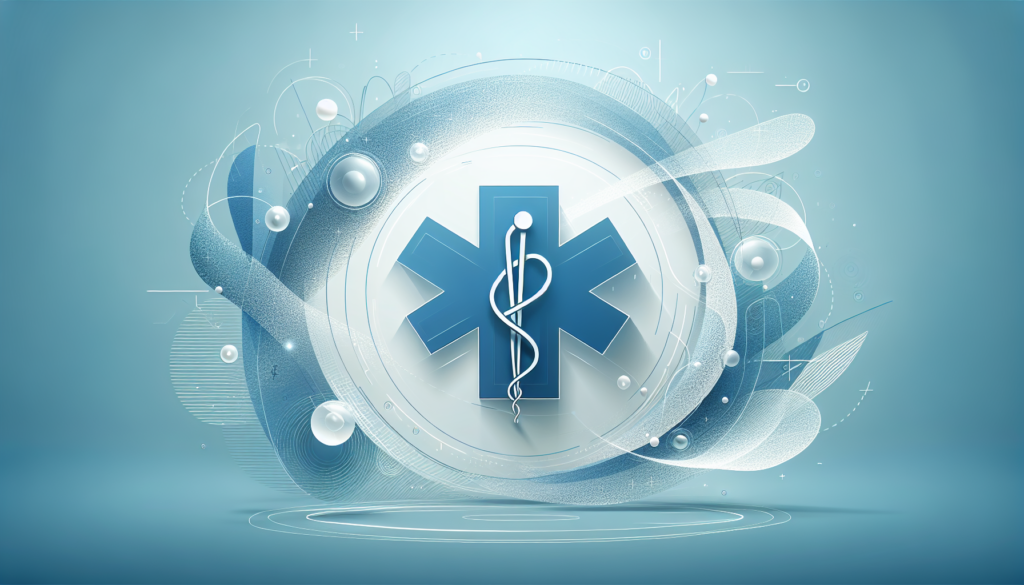Introduction to Medical Coding Programs
Embarking on a career in the healthcare industry can be profoundly rewarding but navigating the complexities of medical coding requires specialized education and training. At the heart of the healthcare billing process, medical coding programs are crafted to train aspiring professionals on how to convert medical procedures, diagnoses, services, and equipment into universal medical alphanumeric codes. The rigor and content of these programs are essential, taking into account the nuanced and often intricate landscape of healthcare documentation and insurance claims. With a detailed curriculum designed to encapsulate the intricacies of coding, these programs aim to produce proficient coders who can adeptly manage and interpret medical records.
Medical coding programs typically offer comprehensive education on several key areas:
- Medical Terminology: Understanding the language of medicine is fundamental for coders.
- Healthcare Reimbursement Methods: Grasping the various insurance plans and payer requirements is crucial.
- ICD, CPT, and HCPCS Coding Systems: Mastery of these coding systems serves as the backbone of the profession.
- Legal and Regulatory Considerations: Coders must be well-versed in HIPAA and other healthcare regulations.
Enrollment in an accredited medical coding program is a vital step for anyone seeking to specialize in this high-demand field. Such programs are tailored to impart skills that align with industry standards and often prepare students for well-recognized certification exams like the Certified Professional Coder (CPC) exam offered by the American Academy of Professional Coders (AAPC). A blend of theoretical knowledge and practical application is standard, equipping students with the aptitude to thrive in various healthcare settings—from hospitals and clinics to dental practices and insurance companies.
Moreover, medical coding programs are continually evolving to meet the burgeoning technological advancements in healthcare. With an emphasis on accuracy and efficiency, the best programs integrate software tools that simulate real-world coding tasks. This dynamic training environment fosters the analytical skills necessary to navigate patient records and assign accurate codes that are crucial for appropriate billing and ensuring sustainable healthcare management. Further, the adaptability of these programs allows for diverse learning modes, including traditional classroom instruction and online classes, providing flexible opportunities for individuals juggling various responsibilities.
| Key Takeaways |
|---|
| Medical coding programs provide essential training for converting healthcare information into universal codes. |
| Curriculums cover medical terminology, reimbursement methods, coding systems, and legal considerations. |
| Accredited programs prepare students for certification exams and real-world healthcare settings. |
| Programs keep pace with healthcare technology, training students using simulation software for practical experience. |
Accredited Medical Coding Certification Programs
Embarking on a career in medical coding requires not only a grasp of complex coding systems but also a credential that validates one’s expertise. Accredited Medical Coding Certification Programs are essential milestones along this path. These programs are meticulously structured by reputable accrediting bodies to ensure that the curriculum meets industry standards for excellence in healthcare documentation. The certifications obtained through these programs are a testament to the proficiency of medical coders in navigating the intricate healthcare reimbursement landscape.
Notably, various accredited programs cater to different levels of experience and expertise. For beginners, the Certified Professional Coder (CPC) credential, provided by the American Academy of Professional Coders (AAPC), is a sought-after certification that signals comprehensive knowledge in medical terminology, anatomy, coding guidelines, and the application of codes across various healthcare settings. Similarly, the Certified Coding Specialist (CCS) offered by the American Health Information Management Association (AHIMA) is recognized for its emphasis on mastery of hospital inpatient and outpatient coding. Each accreditation serves as a critical stepping stone towards a robust career in medical coding.
When choosing a certification program, the selection criteria should extend beyond initial accreditation. Prospects must consider the program’s curriculum compatibility with their career objectives and its recognition among potential employers. Additionally, a keen eye should be on the program’s ongoing educational resources, which frequently include webinars, coding books, and membership forums that aid in continuing education and professional development. These components contribute to the sustenance of accreditation and compliance with evolving healthcare standards.
The transformative impact of these certifications on a medical coder’s career cannot be overstated. With accredited certifications, medical coders gain access to wider job markets, command higher salaries, and enjoy more advancement opportunities within the healthcare system. These benefits, along with the assurance of quality education and skills validation, make accredited medical coding certification programs an indispensable tool for those looking to specialize in the field of medical coding.
Online vs. In-Person Medical Coding Courses
The healthcare industry is under constant evolution and the demand for skilled medical coders is on the rise. Medical professionals seeking to expand their expertise or newcomers stepping into this field must choose between online and in-person medical coding courses. Each learning format has its distinct advantages and considerations, catering to different learning styles and lifestyle requirements. Online medical coding courses offer unparalleled flexibility, allowing learners to study at their own pace and from any location. This makes them an attractive option for those balancing other commitments such as work or family, or for individuals living in areas without easy access to educational institutions.
Conversely, in-person medical coding courses provide a structured learning environment with direct access to instructors and peers. This traditional classroom setting can foster a sense of community and collaboration that is sometimes absent in online courses. In-person interactions may also lead to networking opportunities that can be invaluable in the medical coding field. The immediacy of teacher-student and peer feedback can enhance the learning process, making it more dynamic and interactive.
It’s important to consider the content and delivery method of the course material when selecting between online and in-person options. Online courses might use a variety of media, such as videos, interactive exercises, and webinars, to engage students. These technological tools can make learning more accessible and can cater to different learning preferences. On the other hand, in-person courses may offer hands-on practice that can be beneficial for visual and tactile learners, who benefit from real-time demonstrations and the opportunity to immediately apply coding principles.
Quality of education is a key factor that should not be compromised regardless of the format. Accreditation of the program, the expertise of the instructors, and the comprehensive nature of the curriculum are critical elements that contribute to the effectiveness of a medical coding course. Prospective students should thoroughly research their options, looking into the course success rate, reviews by past students, and potential career services offered. Remember, your goal is to enhance your professional capabilities as a medical coder, which ultimately contributes to the accurate and efficient management of medical documentation and coding in healthcare practices.
| Consideration | Online Courses | In-Person Courses |
|---|---|---|
| Flexibility | High (study at own pace, location-independent) | Low (set schedule, location-dependent) |
| Learning Environment | Solo learning, technology-driven | Collaborative, face-to-face interactions |
| Content Delivery | Variety of media, interactive online tools | Hands-on practice, immediate feedback |
| Quality of Education | Depends on accreditation, resources, and student engagement | Depends on instructor expertise, accreditation, and curriculum comprehensiveness |
Comprehensive Curriculum in Medical Coding Programs
A comprehensive curriculum within medical coding programs lays the groundwork for thorough knowledge and skills crucial for success in the health information management field. This curriculum is meticulously designed to cover a wide range of topics that enable students to grasp the complexities of medical coding systems, such as the Current Procedural Terminology (CPT), International Classification of Diseases (ICD), and the Healthcare Common Procedure Coding System (HCPCS). As medical coding forms the backbone of revenue cycle management in healthcare, an extensive educational foundation is essential for prospective medical coders to navigate the intricacies of coding and billing processes.
The curriculum commonly includes courses that span introductory concepts to advanced coding techniques, ensuring that participants develop a robust coding proficiency. Students engage with learning materials that tackle medical terminology, anatomy, physiology, and pharmacology—building a solid base to understand clinical documentation and apply the appropriate codes accurately. Beyond the nuts and bolts of coding, topic coverage often extends to important areas such as:
- Health Information Law and Ethics: understanding the legal landscape and ethical considerations in handling patient data.
- Data Management and Quality: skills in maintaining the accuracy and privacy of medical records and databases.
- Medical Reimbursement Methodologies: knowledge of insurance plans, payer requirements, and the claim submission process.
- Software and Technology: familiarizing students with electronic health record (EHR) systems and coding software.
While theory is a significant component, practical application is equally critical to a comprehensive medical coding curriculum. Many programs incorporate practical coding exercises, case studies, and coding practicums in real-world settings to provide hands-on experience. This action-based learning ensures that upon completion, graduates are not only well-versed in coding theory but also adept at applying this knowledge efficiently in professional environments. Such immersive training prepares students to sit for industry-recognized certification exams, which serve as a gateway to a successful career in medical coding.
Preparing for the Medical Coding Certification Exam
Embarking on the journey towards becoming a certified medical coder involves a rigorous process of learning and practice. The certification exam is a critical step in affirming your expertise and dedication to the field. It’s designed to evaluate your understanding of complex coding systems, medical terminology, healthcare reimbursement methods, and the correct application of codes for billing and documentation purposes. To ensure your success, a structured and comprehensive study plan is paramount. This methodical approach will enable you to cover all the necessary material and understand the nuances of the exam’s structure.
Firstly, familiarize yourself with the exam’s blueprint. Different certifying organizations, like the AAPC (American Academy of Professional Coders) and AHIMA (American Health Information Management Association), offer a variety of coding certifications, each with their specific focus areas and guidelines. Grasping the format and the type of questions you will encounter can significantly reduce test-taking anxiety and boost your confidence.
– **Key Areas to Focus On:**
– Coding guidelines and methodologies
– Medical terminology and anatomy
– Healthcare reimbursement logic
– Data quality and documentation
Additionally, an effective study schedule should incorporate diversified learning resources to accommodate various styles of absorbing information. Textbooks, practice exams, coding manuals, and online tutorials can all be instrumental in drilling the material from different angles. Regular practice with real-world coding scenarios also enhances your ability to apply theoretical knowledge to practical situations—a skill that is crucial during the exam.
– **Diversified Learning Resources:**
– Official study guides and textbooks
– Online courses and webinars
– Coding practice software
– Peer study groups and forums
When preparing for the medical coding certification exam, understanding the significance of time management cannot be overstated. The ability to decipher complex cases efficiently will serve you well both during the test and in your future career. As part of your preparation, aim to simulate exam conditions by timing your practice sessions. This will accustom you to the pace required for answering questions within the allotted time and help you to develop strategies for questions that pose a greater challenge and may require more thoughtful consideration.
– **Time Management Tips:**
– Time-bound practice exams
– Strategies for tackling difficult questions
– Pacing techniques to avoid rushing or lingering too long on one question



